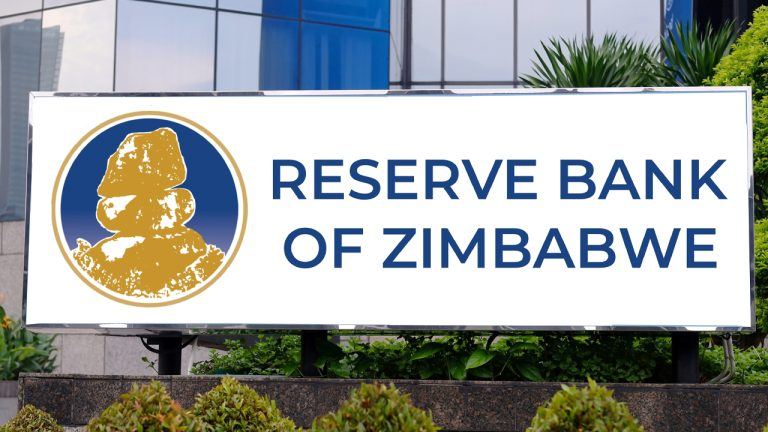Supply chains reimagined: Enterprise DeFi finances personal protective equipment

The development of enterprise DeFi use cases is underway, but mainstream adoption may take longer than expected.
Supply chain management has historically been challenging due to issues, such as increased costs, consumer demands, financial risk, volatility and much more. Unfortunately, the COVID-19 pandemic has created even bigger issues for supply chains globally.
A recent survey conducted by Big Four firm Ernst & Young in late 2020 puts this in perspective, noting that 97% of automotive and industrial product companies found the pandemic to have negative effects on their businesses. The EY study further found that 64% of surveyors believed that the digital transformation of global supply chains will accelerate due to the pandemic.
Although this is merely a prediction, some traditional suppliers have already started to leverage blockchain technology to automate workflow verification to enable more efficient supply chains. For example, freight technology provider ConsolFreight recently formed a partnership with Centrifuge, a decentralized, asset-backed lending platform, to unlock millions of dollars in financing for personal protective equipment.
Ernesto Villa, founder of ConsolFrieght, told Cointelegraph that the company’s client, BioBX, needed to import and deliver personal protective equipment supplies to California school districts during COVID-19. Yet due to the complexity and risks involved with importing PPE, BioBX struggled to ensure this delivery. According to Villa, the collaboration between Centrifuge and ConsolFreight enabled BioBX to obtain about $800,000 in financing to ship two containers of gloves to California schools:
“Most companies don’t want to finance PPE deliveries since these orders are too large for our clients’ balance sheets. So, we technologized the entire BioBX supply chain while financing their freight forwarding (receivables) through Centrifuge’s liquidity pool called Tinlake. This is a prime example of how decentralized finance can combine with real-world assets.”
Enterprise DeFi becomes a reality
Centrifuge and ConsolFreight tokenized and then financed various business processes for BioBX, enabling the company to access financial funds that typically would have remained inaccessible for a number of days.
Kevin Yu, founder of BioBX, told Cointelegraph that with traditional letters of credit, funds remain locked up for the entire duration of the letter of credit. However, Yu mentioned that ConsolFreight allowed BioBX to quickly free up this cash flow.
To put this into perspective, Martin Quensel, co-founder of Centrifuge, told Cointelegraph that the company tokenizes real-world assets, like LCs or bills of lading, and then places those assets on a blockchain network as nonfungible tokens. These NFTs are then turned into smart contracts and placed in Centrifuge’s liquidity pool called “Tinlake,” which is connected to the MakerDAO protocol. Tinlake then retokenizes these assets to create fungible ERC-20 tokens for investors. Quensel explained:
“Investors can then invest in that pool and get an ERC-20 token in return. There is also a possibility of DeFi and tokens purchased by individuals since the Tinlake pool is connected to MakerDAO.”
The Tinlake protocol ultimately allows an asset originator, like ConsolFreight, to lock in collateral as NFTs and finance an asset in with a stablecoin, such as Dai. While this may sound like a foreign concept for traditional enterprises, Yu shared that BioBX was able to get full clarity on the supply chain and logistical happenings throughout this process.
Investing in real-world assets adds value to enterprise DeFi
In addition to the value added for enterprises engaging in DeFi mechanisms to automate supply chains, investing in real-world assets has also become appealing to retail investors.
According to Quensel, investors may find it problematic to hold only crypto assets when trying to correlate between the underlying collateral to Dai, MakerDAO’s stablecoin:
“Adding tokenized real-world assets as collateral for Dai, such as enterprise assets, is key for its long-term stability and adoption as it addresses the two main challenges the DeFi ecosystem is currently facing: stability and volume.”
Quensel further remarked that a diversified pool of assets with different risk parameters will counter some of the inefficiencies of Ether’s (ETH) over-collateralization while increasing the overall volume and value. He said that this is a good fit for “investors who want to diversify and protect their crypto wealth by moving parts of it from crypto assets into real-world assets but still investing in crypto at the same time.”
Challenges facing enterprise DeFi adoption
While enterprise decentralized finance has the potential to disrupt global supply chains, a number of challenges remain.
For instance, standards around how to finance real-world assets are still unclear. Paul Brody, global blockchain lead at Ernst & Young, previously told Cointelegraph that as soon as standards emerge, the firm hopes to allow its enterprise clients to take advantage of these DeFi markets.
Fortunately, the development of enterprise DeFi standards is well underway. For example, the Baseline Protocol is an emerging standard for efficiently automating workflow verification. John Wolpert, co-founder of Baseline Protocol and group executive for enterprise mainnet at ConsenSys, told Cointelegraph that it’s expected that such standards will drive down verification costs enough to make regular receivables financing something that small and medium-sized vendors can afford. “When vendors don’t have to worry about whether or when they will get paid, they can help keep the economy moving by putting capital to work more confidently and quickly,” he said.
Wolpert further added that enterprise DeFi standards are important for removing a profit motive that may emerge with competing platforms. According to him, this would divide a system that is better maintained as a commons:
“Essentially, if you can profit from supplying function, then others will discover that you can make a profit and try to convince others to buy their version. This is right and proper for most things. But take the internet — there, you don’t want two different versions, but rather, you want everyone contributing to the same system.”
Anaïs Ofranc, lead for the Oasis Open standards and specifications working group, also told Cointelegraph that enterprise DeFi adoption involves conceiving both enterprises and investors that their existing business needs can be addressed in a faster and more cost-efficient way while maintaining the level of security and commercial confidentiality that they are used to. As such, Ofranc noted that the key question then becomes how to convince both parties at scale:
“One answer could be standards. Both target groups operate in environments where compliance to standards provides the level of assurance and reliability they require. One assumption could be that for enterprise DeFi to go mainstream, providers of decentralized finance solutions would need to consistently and measurably provide the same or superior level of guarantee.”
Standards aside, optimism remains for the future of enterprise DeFi. Kyle Thomas, founder and CEO of Provide Technologies — a company enabling the tokenization of real-world assets — told Cointelegraph that the opportunities to improve modern treasury operations and optimize cash management using financial instruments will incentivize large organizations to participate in the enterprise DeFi ecosystem.
Echoing this, Quensel noted that decentralized technology will be a game-changer for traditional finance moving forward. “You can send millions of dollars in financing across a blockchain network. You can’t do this with traditional banking systems.”









